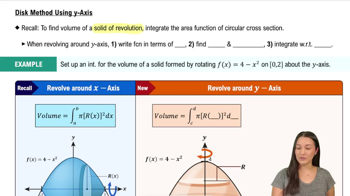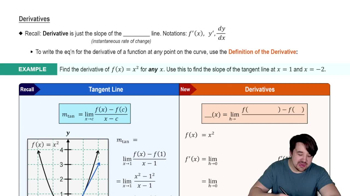Quadratic approximations
b. Find the quadratic approximation to f(x) = 1/(1 − x) at x = 0.
 Verified step by step guidance
Verified step by step guidance Verified video answer for a similar problem:
Verified video answer for a similar problem:



 5:53m
5:53mMaster Finding Differentials with a bite sized video explanation from Patrick
Start learning